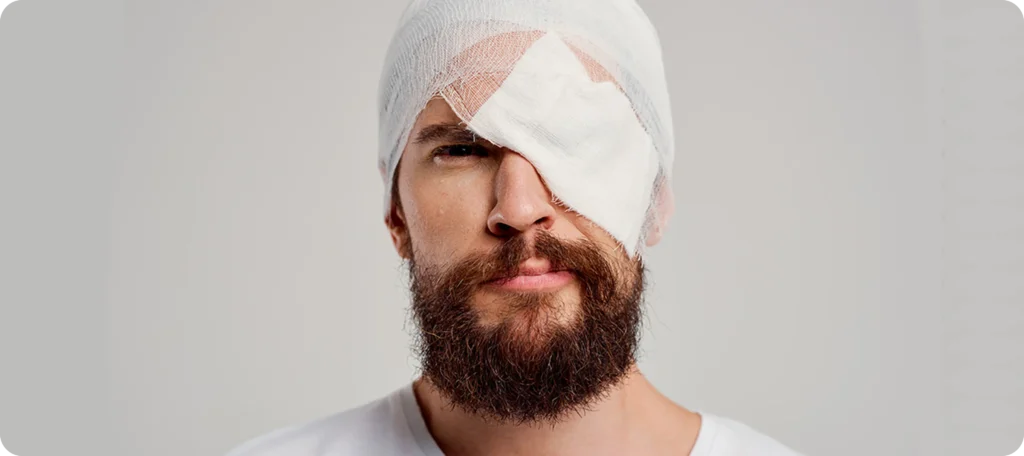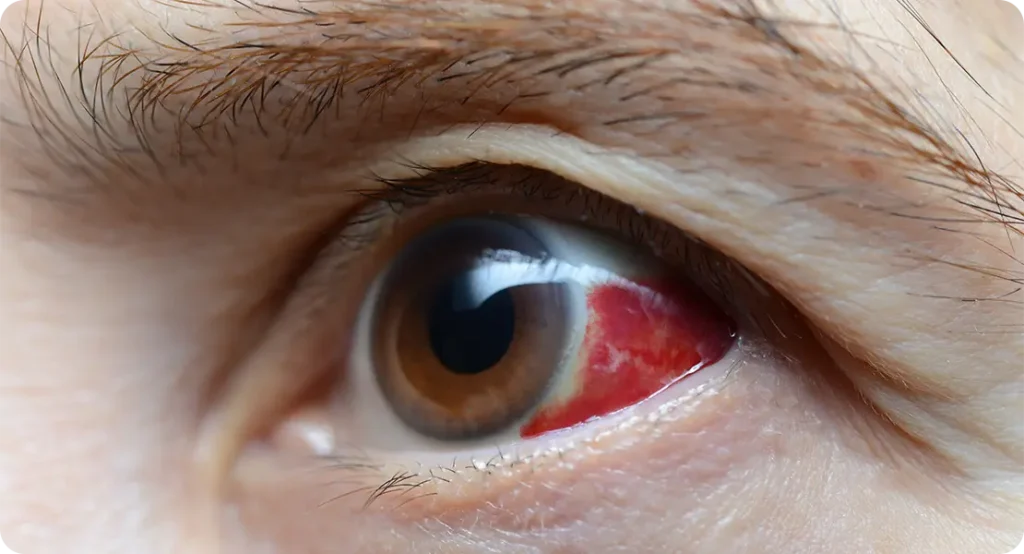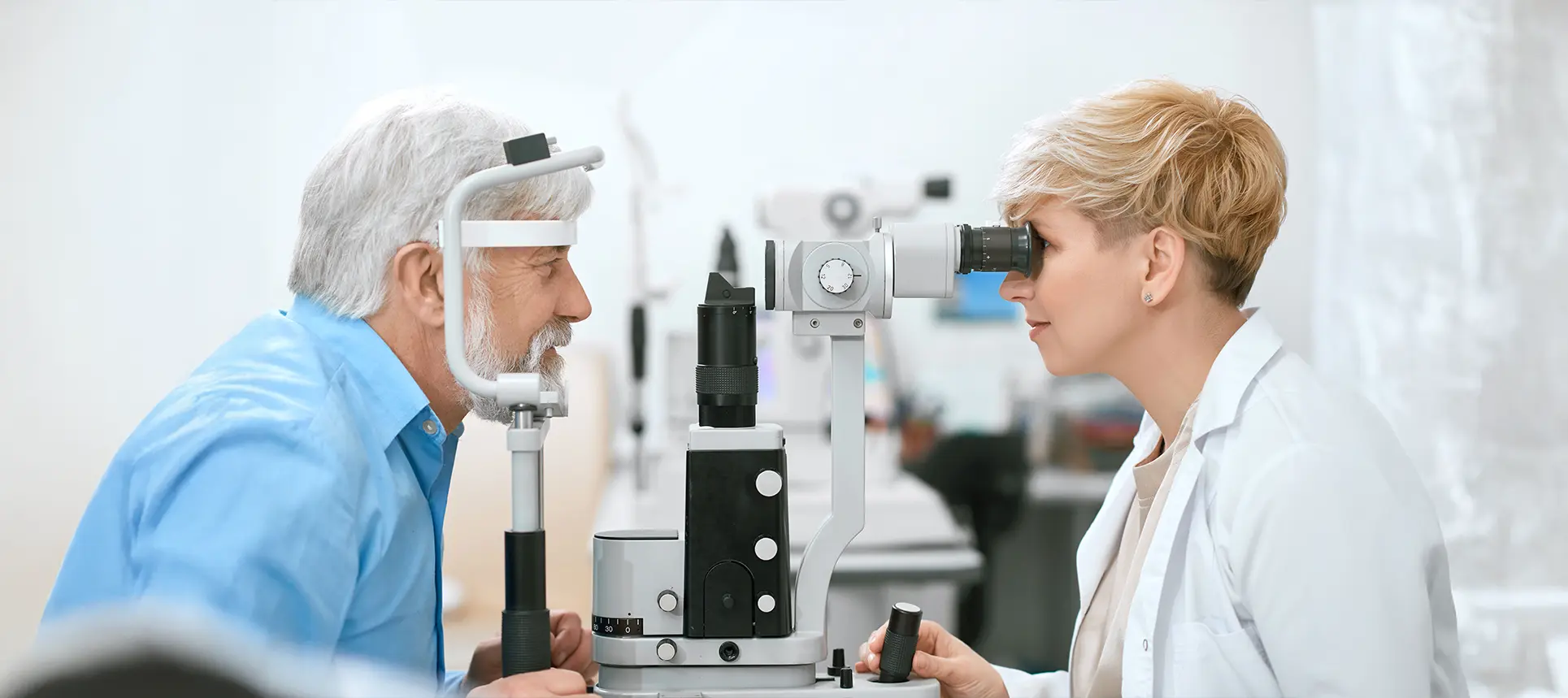Not all cataracts are the same. While most are relatively straightforward and respond well to standard surgery, some are more complicated. These are known as complex cataracts, and they require a bit more thought, care, and planning. If you’ve been told your cataract might be complex, don’t panic – it doesn’t mean you can’t be helped. It just means your eyes need a more tailored approach.
So, what actually makes a cataract complex? It often comes down to your eye health as a whole. If you’ve had previous eye trauma, other conditions like glaucoma or uveitis, or past surgeries, things can get a bit more technical. But thankfully, advances in technology and surgical techniques mean that many of these issues are manageable – it just takes a bit of extra precision.
In this article, we’ll walk through the key causes that can turn a standard cataract into a more complex one, how these are addressed by your specialist, and what you can expect from diagnosis through to recovery.
Eye Trauma: When Injury Leaves Its Mark
One of the most common reasons a cataract is labelled “complex” is previous trauma to the eye. This could be a direct blow, a penetrating injury, or even long-term consequences from surgery or foreign bodies. Trauma can damage the natural support structures around the lens or cause irregularities in the cornea or iris, making cataract removal more challenging.
What often happens with traumatic cataracts is that the lens becomes unstable. It might shift or be partially dislocated, which makes the removal process more delicate. The surgeon must take special precautions to avoid further damaging the eye, sometimes using tiny hooks or rings to hold the lens capsule in place during surgery. Additional imaging is often used pre-operatively to understand what’s going on beneath the surface.
In some cases, the eye may have retained fragments of glass, metal, or other materials from the original injury. These need to be managed before or during the cataract surgery itself. Even old injuries – ones that happened years ago – can affect how your cataract develops and how easily it can be treated.

Despite these challenges, most patients still achieve good outcomes when the surgery is done by an experienced ophthalmologist. The key lies in understanding the history of trauma and customising the surgical plan to suit the individual eye.
Glaucoma: A Delicate Balancing Act
If you’ve been diagnosed with glaucoma, cataract surgery becomes a bit more of a balancing act. Glaucoma affects the pressure inside your eye and can damage the optic nerve. While cataract surgery can actually lower intraocular pressure in some people, it still needs to be done with extra care to avoid destabilising things further.
One issue with glaucoma is that long-term use of medications or previous surgical interventions (like trabeculectomy or shunts) can change the eye’s internal structure. These changes make surgery more complex – for instance, the pupil may not dilate well, or the tissues may be more fragile. These factors all influence how your ophthalmologist prepares for and performs the operation.
Another consideration is the timing of cataract surgery in people with glaucoma. In some cases, it makes sense to combine the procedure with a glaucoma treatment like MIGS (minimally invasive glaucoma surgery). This way, both issues can be tackled at once. But if your glaucoma is not well controlled, your doctor might recommend treating that first before touching the cataract.
So, while glaucoma complicates things, it doesn’t rule out cataract surgery. It just means there needs to be a closer partnership between you and your surgeon, and possibly a slightly longer recovery period to allow the eye to settle down post-surgery.
Uveitis: When Inflammation Changes the Game
Uveitis is a type of inflammation that affects the middle layer of the eye. If you’ve had uveitis – whether recently or in the past – it can significantly increase the complexity of cataract surgery. That’s because inflammation can cause the iris to stick to the lens, create scar tissue, or lead to clouding and thickening of the lens capsule.
Managing cataracts in uveitic eyes means controlling inflammation before anything else. Your ophthalmologist will often delay surgery until the eye has been quiet – meaning no active inflammation – for at least a few months. Steroids and immunosuppressants may be used in the run-up to surgery to keep things under control.

During surgery, there’s a higher risk of the pupil not dilating properly or sticking to other parts of the eye. Surgeons use special pupil expanders or anti-inflammatory medications to manage this. Even the choice of lens implant might differ – for example, avoiding multifocal lenses that could worsen visual disturbances in inflamed eyes.
After surgery, follow-up is especially important. Uveitis can flare up again, so long-term control is key. But with the right pre- and post-operative strategy, many patients with uveitis still achieve excellent visual outcomes – it just takes more vigilance.
Other Contributing Factors
In addition to trauma, glaucoma, and uveitis, there are a few other conditions that can complicate cataract surgery:
- Previous refractive surgery (like LASIK or PRK): This alters the shape of your cornea, which can make it harder to calculate the correct lens implant.
- Corneal disease or scarring: This affects visibility during surgery and the accuracy of pre-op measurements.
- Weak zonules: These are the fibres that hold the lens in place. If they’re loose or damaged (as in pseudoexfoliation syndrome), the lens may shift or wobble during surgery.
- Diabetes: This can increase the risk of swelling at the back of the eye after surgery (macular oedema) and complicate healing.
Each of these adds a layer of complexity – but none are dealbreakers. Surgeons adapt by using specialised instruments, modifying their technique, and offering extra follow-up care.
Frequently Asked Questions About Complex Cataracts
1. What does it mean if I’ve been told I have a complex cataract?
A complex cataract is one that presents additional challenges compared to a standard case. This could be because of the condition of the eye itself – for example, if you’ve had previous trauma, inflammation, surgery, or diseases like glaucoma or diabetes. It simply means your surgery requires more planning, care, and possibly a slightly different approach.
Your eye may have structural issues, such as weak lens support or a cloudy cornea, that make the surgery trickier. In some cases, the cataract itself is denser or positioned awkwardly, meaning it takes more time and care to remove. This doesn’t mean the surgery isn’t possible – just that it needs to be done with greater precision.
Being told your cataract is complex isn’t a reason to panic. It’s more of a heads-up that your eye will need extra attention to detail. Surgeons often use specialised equipment and techniques tailored to these cases, which helps reduce the risk of complications and improve outcomes.
You’ll usually be under the care of a consultant ophthalmologist with experience in complex cases. The goal remains the same as in standard cataract surgery: clearer vision and improved quality of life – it just might take a few more steps to get there.
2. Is cataract surgery riskier if it’s complex?
Cataract surgery is generally very safe, but yes, there are slightly increased risks when the cataract is complex. These might include things like prolonged inflammation, a higher chance of surgical complications, or a slower recovery time. However, most of these risks are well understood and manageable with careful planning.
One potential complication is something called posterior capsule rupture – where the thin membrane holding the lens breaks. This is more likely in eyes with weak support structures, previous trauma, or very dense cataracts. When surgeons know the case is complex, they’re prepared with backup plans, such as special lenses or vitrectomy tools, if needed.

Another consideration is how well your eye heals. In conditions like uveitis or diabetes, inflammation or swelling can be more common after surgery. That’s why your aftercare might involve a longer course of anti-inflammatory drops or closer follow-up to catch issues early. Surgeons will tailor your post-op plan based on your individual risk profile.
Despite these added complexities, outcomes for complex cataract cases are often still excellent – especially in the hands of a skilled ophthalmologist. So while the risks are slightly higher, they’re well controlled, and the benefits of surgery usually outweigh the concerns.
3. How do surgeons prepare for complex cataract surgery?
Surgeons take a very meticulous approach when preparing for complex cataract cases. It starts with an in-depth assessment, including detailed scans of the eye’s structure, measurements of the lens, and checks on intraocular pressure. This information helps them create a tailored surgical plan designed specifically for your eyes.
Your medical history is also vital. They’ll ask about any eye injuries, previous operations, long-term conditions like diabetes or glaucoma, and even medications you’ve taken. All of this provides context for how your eye may respond during and after the procedure. If there’s a history of inflammation, for instance, they might begin steroid drops in advance.
The actual surgical setup might include different tools compared to a standard cataract case. For example, they may use capsular tension rings to support a weak lens capsule, pupil expanders for poor dilation, or intraoperative imaging to guide every step. Some complex cases might also involve longer surgery times or assistance from a second consultant.
What really makes the difference is experience. Surgeons who routinely manage complex cases know how to adapt on the spot and stay ahead of potential issues. It’s not about doing a ‘more aggressive’ surgery – it’s about doing a more thoughtful and flexible one.
4. What kind of lens will I get if I have a complex cataract?
In complex cataract cases, the choice of intraocular lens (IOL) is often more tailored. While most people with straightforward cataracts can choose from a variety of lens types, including multifocal and toric lenses, complex cases may require more stable or specialised implants. This is all based on the structure and condition of your eye.
For example, if you’ve had glaucoma surgery or have weak zonules, your surgeon might avoid certain premium lenses that need perfect alignment. Instead, they may go for a monofocal lens that provides sharp distance vision and is less likely to cause visual disturbances or move out of place. In some cases, lenses are sutured in or placed in the front chamber of the eye for added stability.
Toric lenses are sometimes used in patients with significant astigmatism, but even these may be used with caution if there’s a risk of rotation. The ultimate goal is to restore the best possible vision safely and reliably – so lens choices are made with that in mind. In cases where the natural capsule can’t support a lens, secondary procedures may be planned.
You’ll have a full discussion with your surgeon before the operation about what lens they recommend and why. It’s always a balance between correcting vision and ensuring long-term safety – and for complex cataracts, safety usually comes first.
5. Will recovery take longer with a complex cataract?
It’s quite common for recovery to be a bit longer with complex cataract surgery. That’s because your eye may have more healing to do, especially if there’s been trauma, inflammation, or previous surgery. You might also need to attend more follow-up appointments and use eye drops for a longer period.
In the first few days after surgery, the eye may feel slightly more irritated or sensitive compared to someone with a standard cataract. Vision might also be slower to improve, particularly if your surgeon had to take extra steps during the procedure, like inserting support rings or removing scar tissue. These things all add to the healing timeline.

That said, “longer” is a relative term. For many people, it simply means a few extra weeks rather than days. Full recovery might take 6–8 weeks, and you’ll likely be monitored closely during this period. Your surgeon will check for signs of inflammation, changes in pressure, or fluid build-up at the back of the eye.
It’s crucial to follow your aftercare instructions carefully – use the drops as prescribed, don’t skip your check-ups, and report any vision changes straight away. With patience and good care, your eye has every chance to heal well, even if the journey is a bit more involved.
6. Can complex cataracts be treated in the NHS or is private care better?
Both NHS and private healthcare systems in the UK can treat complex cataracts, but the experience might differ slightly in terms of waiting times, surgeon selection, and access to certain technologies. The NHS has highly skilled ophthalmologists, many of whom specialise in complex cases and work in tertiary referral centres.
In more straightforward NHS settings, complex cases may be referred to a consultant with subspecialty training or to a hospital eye department with the right equipment. You may experience a longer wait to be seen and treated, but the care itself is still safe and well-regulated. You might not have the same level of choice when it comes to lens type or timing of surgery.
Private care offers more flexibility. You can often choose your surgeon, book surgery sooner, and discuss premium lens options more freely. If your case requires advanced imaging, femtosecond laser assistance, or combined procedures, these may be easier to access privately. However, the cost is a factor to consider, especially for complex procedures that may require follow-up.
Whether NHS or private, what matters most is that you’re treated by an experienced specialist with the right tools. If you’re unsure, speak to your GP or optometrist – they can help guide you towards the right referral pathway for your situation.
7. What should I ask my consultant if I have a complex cataract?
It’s a great idea to go into your consultation with a few questions in mind. Start by asking what specifically makes your cataract complex. Understanding whether it’s due to trauma, glaucoma, inflammation, or something else helps you make sense of what to expect. It also opens the door to a more transparent discussion about your treatment.
You should also ask what the risks are in your case and how the surgeon plans to manage them. Ask whether special tools or techniques will be used, and whether there’s a backup plan if something doesn’t go as expected. A good surgeon will explain all of this clearly and give you confidence in the approach.
Another important question is about outcomes. Ask what kind of visual improvement you can realistically expect. If your eye has other issues – like a damaged retina or corneal scarring – your final vision may not be perfect, but it can still be vastly better than before. Setting expectations early is key to avoiding disappointment.
Finally, talk about recovery. Ask how long you’ll need to take it easy, what drops or follow-up appointments are involved, and whether you’ll need help at home. The more informed you are going in, the more confident and relaxed you’ll feel about the whole process.
Final Thoughts
Complex cataracts might sound a bit overwhelming, but they’re just part of the wide spectrum of eye conditions that specialists handle every day. Whether your cataract has been made more difficult by injury, inflammation, surgery, or other conditions, there’s almost always a safe and effective treatment path available.
The main thing to remember is that you’re not alone in this. Your ophthalmologist is there to guide you, plan the right strategy, and walk you through each step with care. It may take a bit longer than usual, and you may need to attend a few more appointments – but the goal is always to help you see clearly again.
Modern cataract surgery is remarkably adaptable. With the right planning, tools, and a surgeon who understands your particular eye, excellent outcomes are entirely possible – even in the most complex cases. If you’re concerned that you may be suffering from complex cataracts, you can contact us at the London Cataract Centre to arrange a consultation with one of our expert cataract surgeons who specialises in managing complex cases. If you’re facing complex cataract surgery, don’t be afraid to ask questions, take your time, and make sure you feel comfortable with your care plan. Your eyes deserve that – and so do you.

